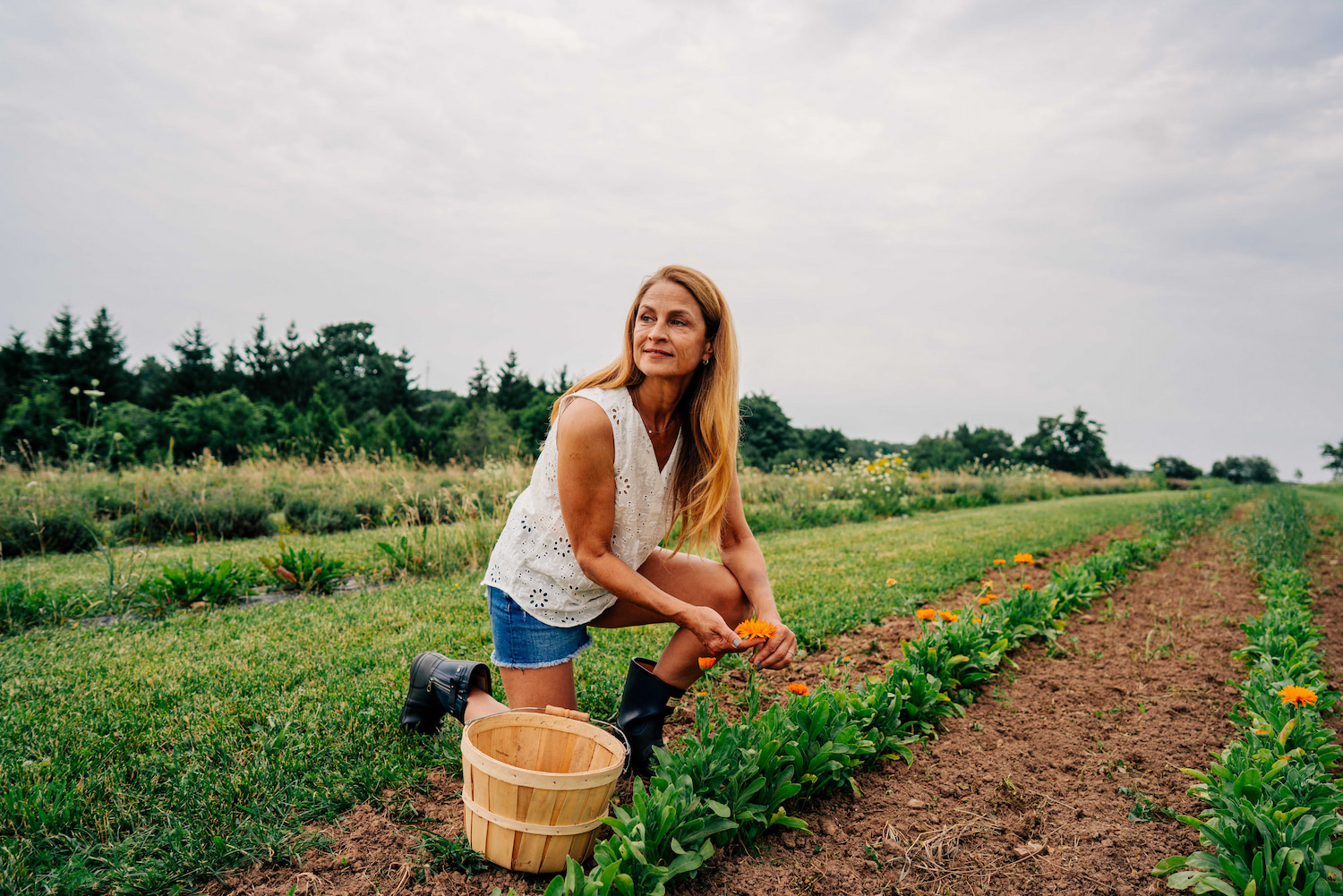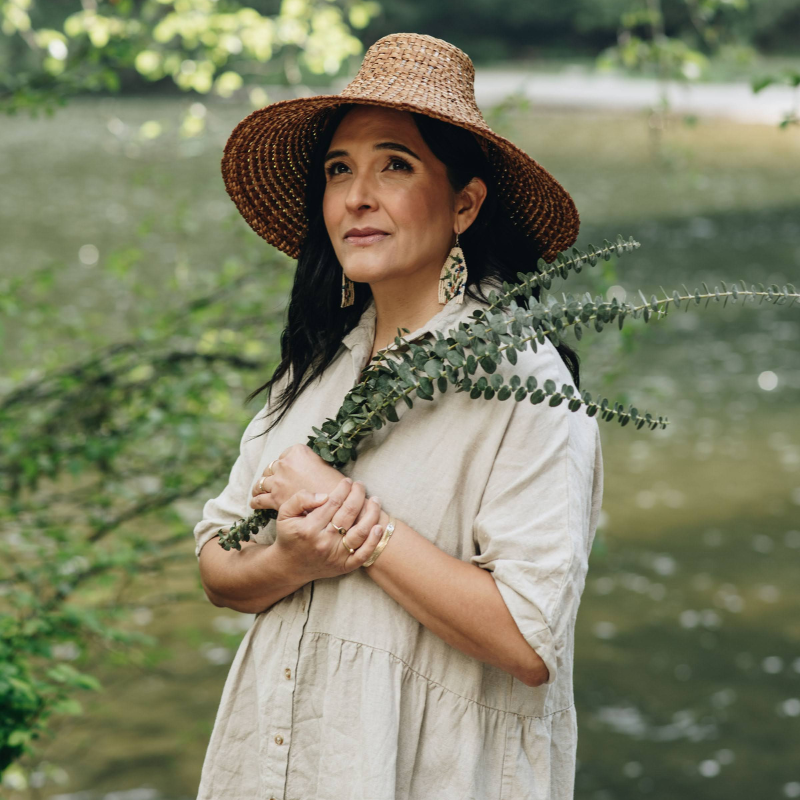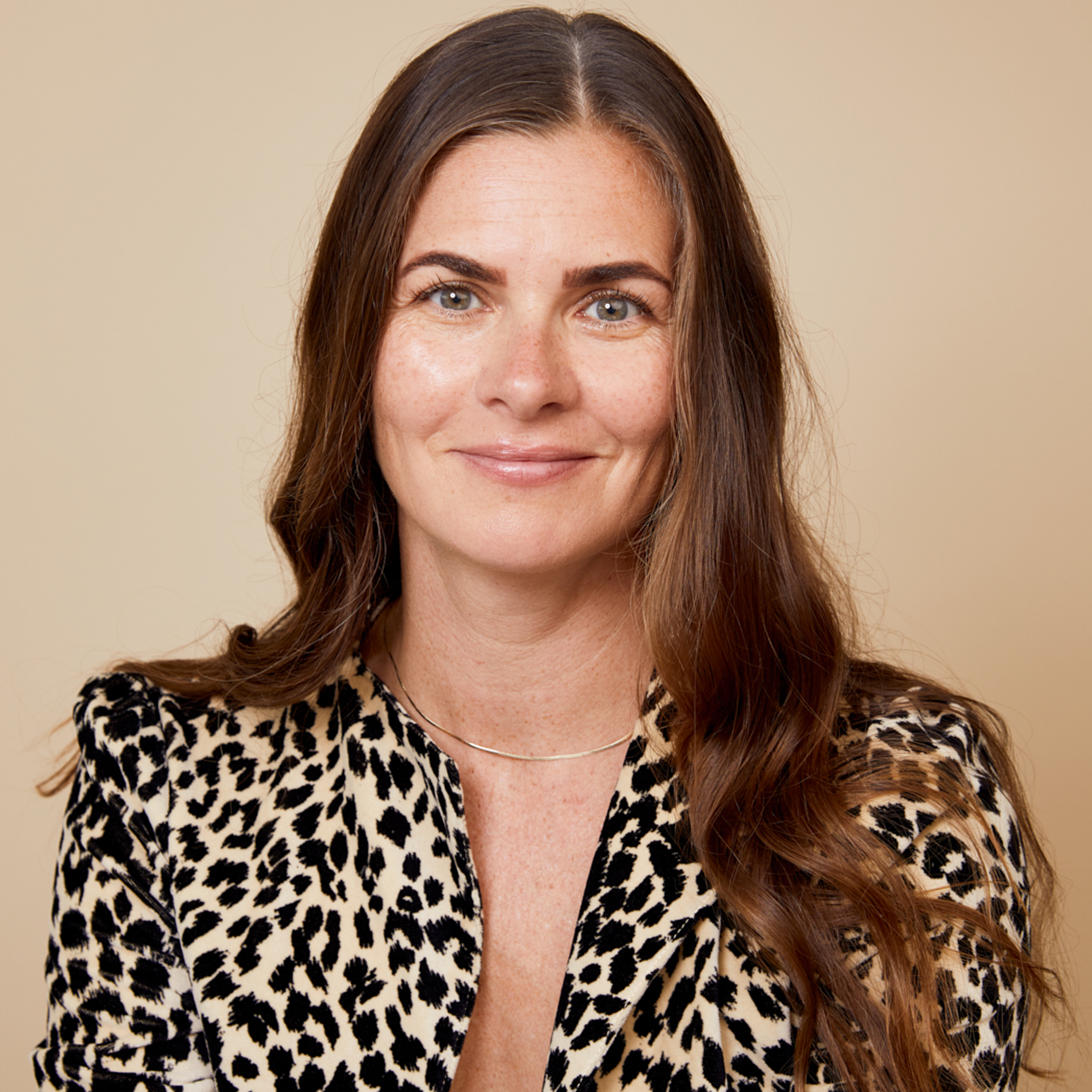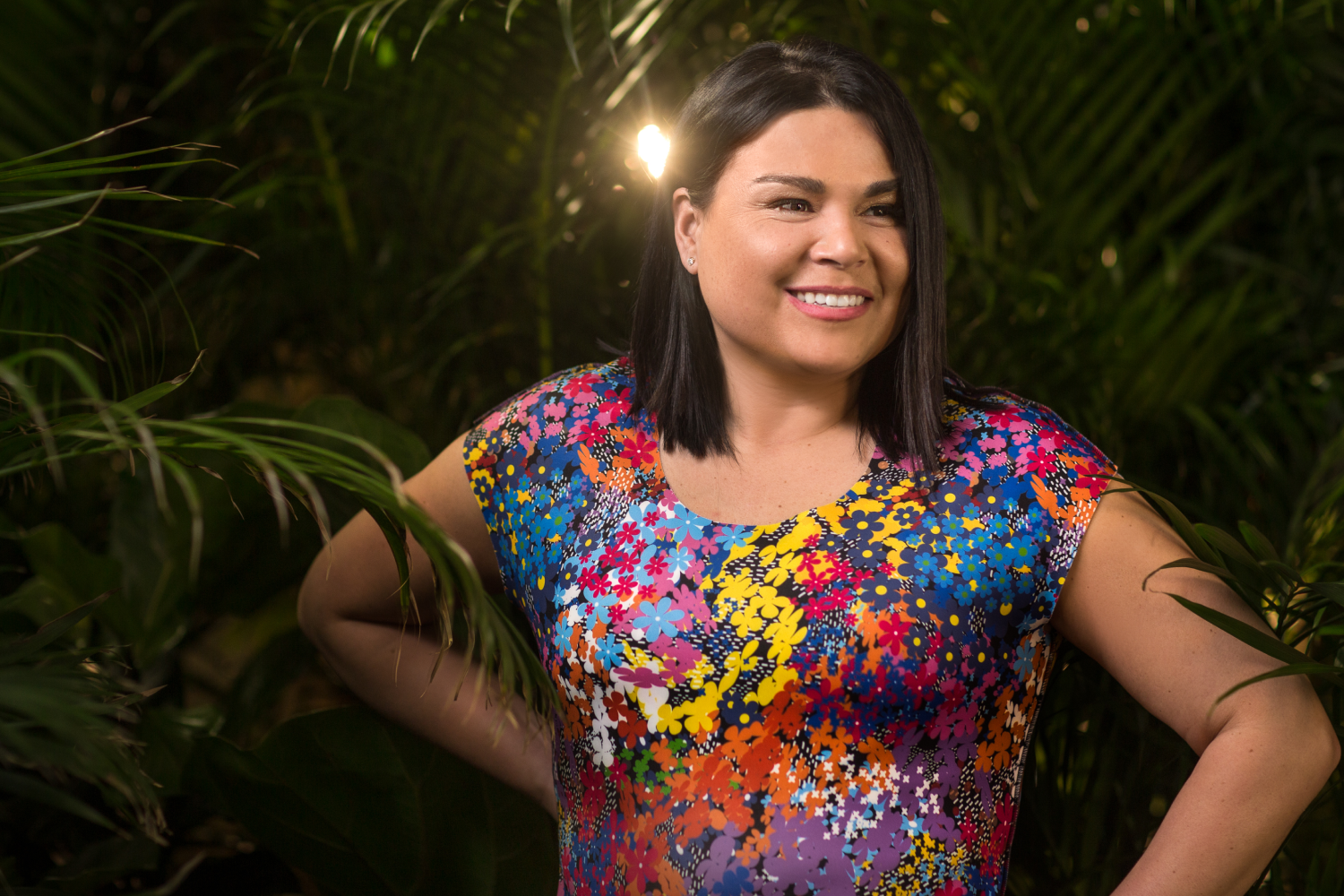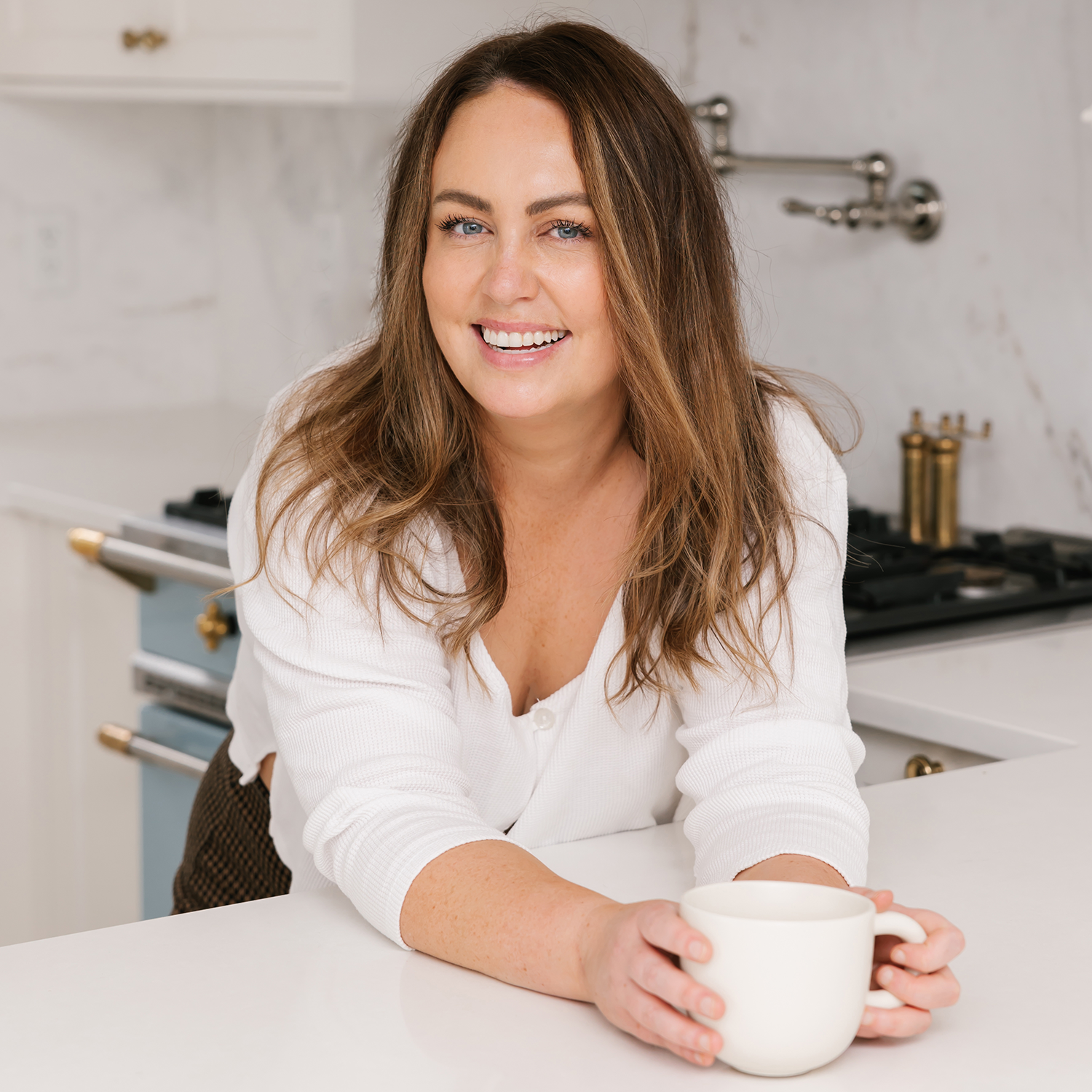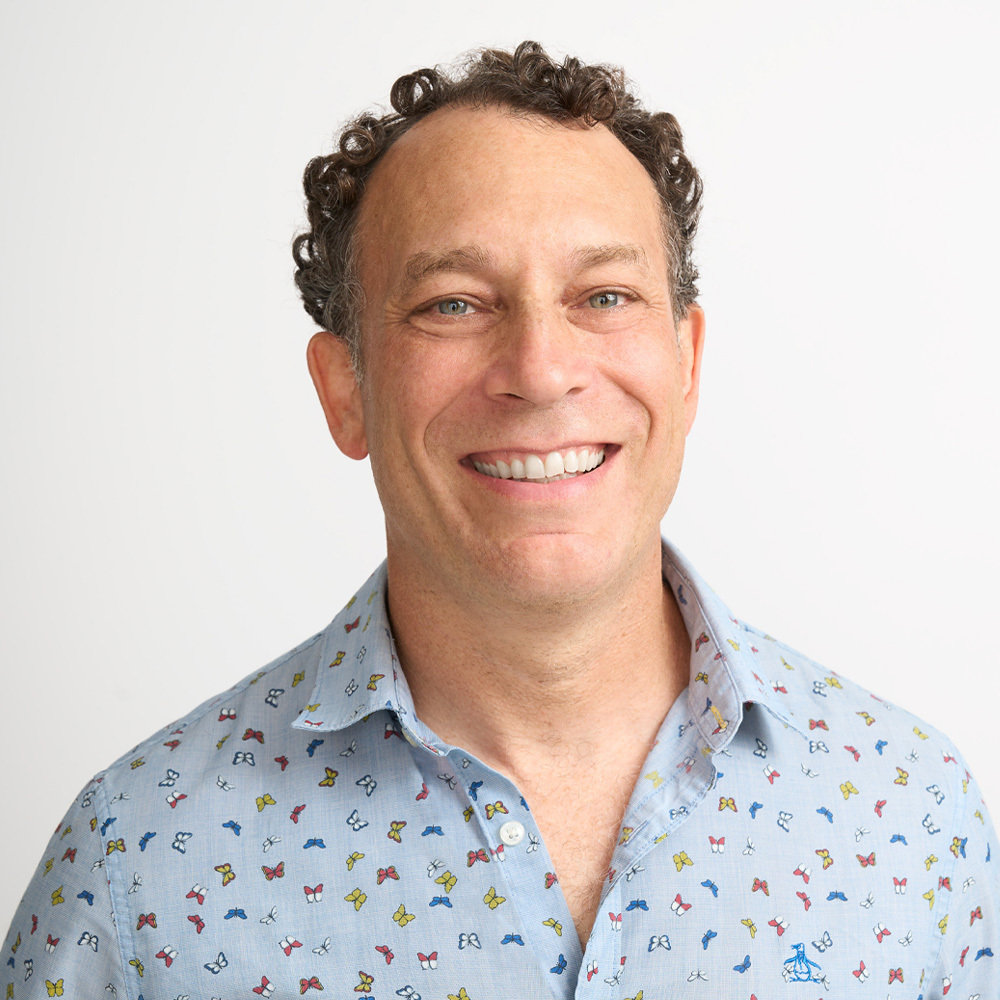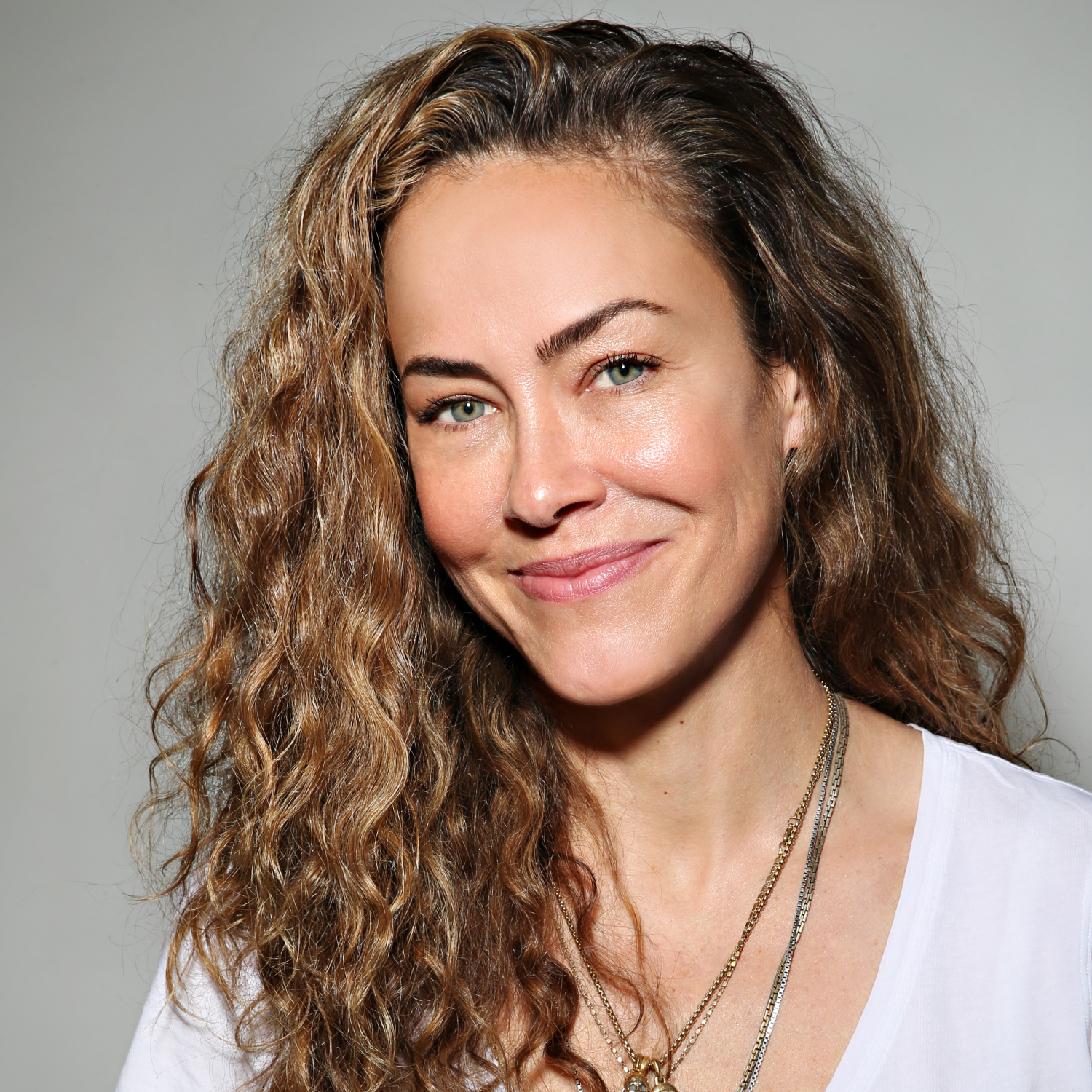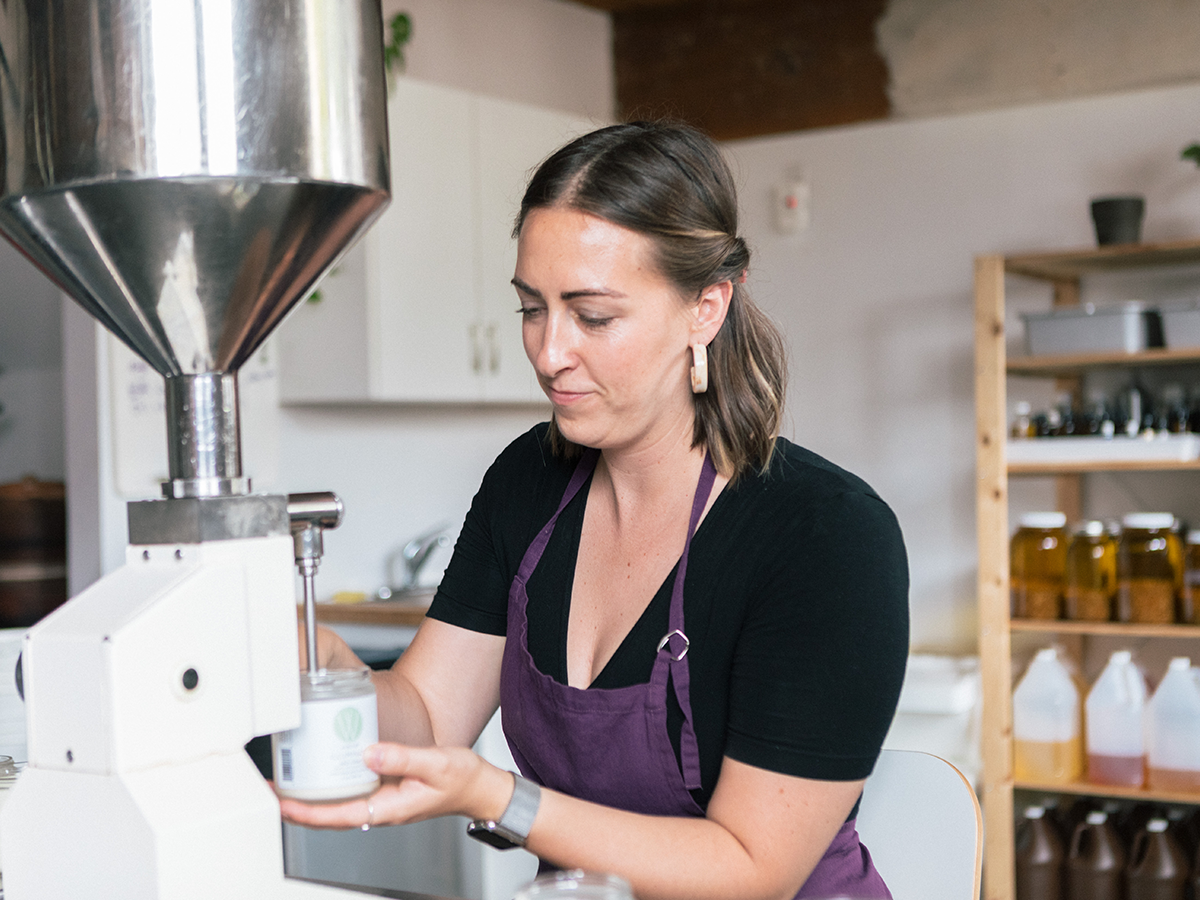How Patrice Mousseau Went from Model to Journalist to Organic-Skincare Entrepreneur
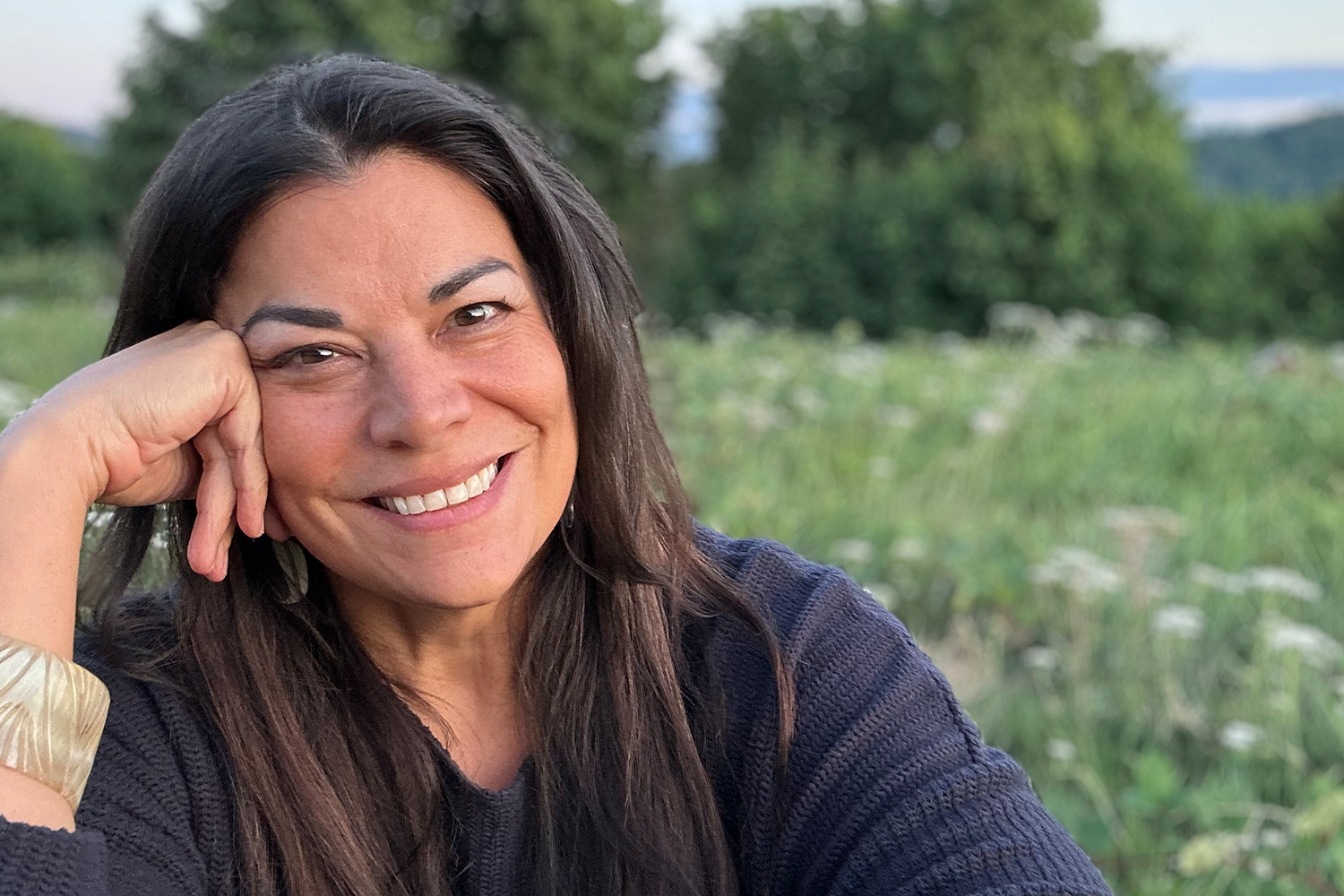
Many entrepreneurs will tell you that what they’re doing now is not what they initially set out to do. Making major professional changes—even mid- to late-career—can often lead to more fulfilling and successful outcomes. That’s what our series The Pivot is all about. Each month, we speak to founders, business leaders and entrepreneurs about how—and why—they changed course and found success in an entirely different industry. Here, we speak to Patrice Mousseau, founder of Satya Organics.
Growing up in remote Sioux Lookout, Ont., 350 kilometres northwest of Thunder Bay, Patrice Mousseau dreamed of one day becoming a bestselling fiction author. The self-described voracious reader recalls being the kind of student who always jumped several chapters ahead of the assigned readings at school. But life took her in a different direction after winning a modelling and talent competition in 1994. From there, Mousseau landed a contract with modelling agency Ford, then Elite Models, and spent the next three years booking campaigns for clients like Telus and Randy River and walking the Fashion Cares runway, a benefit raising money for AIDS/HIV awareness, alongside RuPaul and Gloria Gaynor.
However, Mousseau never quite took to the modelling lifestyle. “Modelling is really hard on the ego,” she says. “One day you’re doing a shoot and get treated like a princess, the next you hear all the things agents don’t like about you.” Plus, she hated getting her picture taken. During a conversation with a friend who worked in advertising, she admitted her desire to share her stories with the world had never disappeared. He suggested she work in media so she could use her storytelling skills.
Related: How Sarah Henderson Grew Her Side Hustle Into a Thriving Home-Goods Brand
Mousseau spent several years working at ad agencies and learned web-development. In 1998, she phoned up the newly founded Toronto-based Aboriginal Voices Radio Network (AVRN) and offered to use her skills to build a website for them as a way to get her foot in the door. Founder Gary Farmer, who answered the phone, liked her voice so much he offered her a position on-air instead. Within four months, she had ascended to the role of AVRN’s program director and spent the next decade as an on-air personality at AVRN and later at the Aboriginal Peoples Television Network (APTN) and CBC. As a journalist, Mousseau interviewed Justin Trudeau, Jack Layton and Ralph Nader.
Shortly before giving birth to her daughter, Esme, in 2011, Mousseau’s contract with CBC Manitoba ended and she moved to British Columbia to be closer to her then-partner’s family. In 2012, her eight-month-old daughter developed itchy, red welts of eczema on her skin. “She was scratching so hard she was bleeding onto her crib sheets,” she says. A doctor prescribed steroid cream, but Mousseau wanted something more natural.
Mousseau researched for weeks, reading academic papers on natural cures for skin conditions, settling on several ingredients to mix into a remedy: almond oil, calendula-infused jojoba oil, colloidal oatmeal and beeswax. She bought a used crock pot for $15 on Facebook and blended everything together into an unctuous balm. Within two days, she says her daughter’s rash disappeared. With an entire crock pot of her concoction to get rid of, Mousseau offered the leftovers on Facebook to anyone who needed it. She ended up brewing three more crock pots to keep up with demand. Unwittingly, Mousseau had a burgeoning skincare business on her hands.
Related: Kathy Tran-Riese Is Bridging a Gap in the Eyewear Market
Madeleine Shaw, the founder of Lunapads (now Aisle), invited Mousseau to attend the Social Venture Institute Women conference and bring her balm. (The two women met when Mousseau interviewed Shaw for a podcast in her journalism days.) Until then, Mousseau had never been interested in running her own company. “My perception of business has always been pretty negative. I thought it was very extractive, and focused on the bottom line,” she says. “But when I saw companies like Nature’s Path at the conference, which is successful but still maintains its values, I realized I could turn this product into a business.”
At the time, Mousseau was still doing freelance radio-hosting work and had recently completed a radio documentary on Indigenous reconciliation in Canada. So she simply decided to add “eczema balm” to the roster of projects she was working on. Mousseau started out selling her cream at weekend farmers markets in Port Moody and scaled the business by pitching her product to local children’s stores and health food stores. But soon, there was such a demand for the product that fulfilling orders required all of Mousseau’s attention. “Changing careers was very natural,” she says. “I didn’t feel a loss because I never closed myself to any journalism opportunities in the future—and I haven’t ruled out going back someday.”
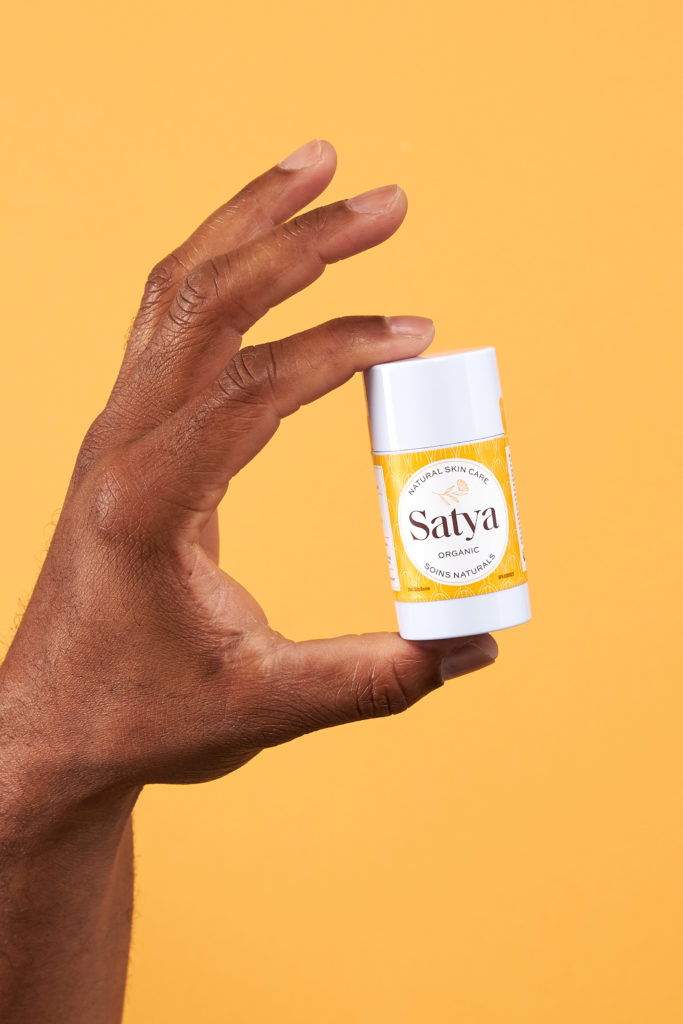
She named her company Satya Organics, after the Sanskrit word for “truth.” The word resonated with Mousseau because believes in running a business that stays true to her values of natural, eco-friendly ingredients, regardless of cost or convenience. “I wanted to build a company that I could be proud of and be a role model for my little girl,” she says. Through sheer determination and hustle, Mousseau landed her product in 70 stores on the lower mainland by 2020. For online sales, she recruited stay-at-home moms on Facebook to act as makeshift fulfillment staff, paying them to ship out the product from their homes. “I would put my daughter to bed, then stay up all night making more cream and sleep for three or four hours,” she says.
Related: How JJ Walsh Went From Fashion Editor to Facial Bar Founder
Satya’s big break came later that year, when Mousseau received a call from Whole Foods requesting to stock her products in 14 stores across Canada. Realizing it was time to move out of her kitchen, she began working with Purity Life, an Ontario-based health-product distributor, to distribute her cream on a larger scale. Mousseau took $700,000 in VC funding from Raven Indigenous Capital Partners—an investment firm that funds Indigenous business ventures—in 2020 to create more inventory, which she paid off in less than a year with help from an angel investor friend. After an appearance on CBC Radio One in 2021, Mousseau’s product inventory sold out in two days. “We’ve doubled our revenues every single year,” she says.
In October 2022, Mousseau learned of a Loblaws pitch competition through the Canadian Council for Aboriginal Business. She shot a two-minute pitch video, highlighting that Satya had all the proper processes, software, insurance and certifications in place to get the product on store shelves in short order. The judging panel loved it. As of July, Satya is now carried in 1,100 Shoppers Drug Mart locations, as well as 600 other stores across the country. The company has recently expanded its product offerings to include a soothing oat and calendula flower bath soak, which comes with a QR code linking to a playlist of Indigenous musicians so customers and turn on the tunes and relax. And, for those with a green thumb, the soak’s seeds can be scooped out after the bath and used to grow a calendula plant.
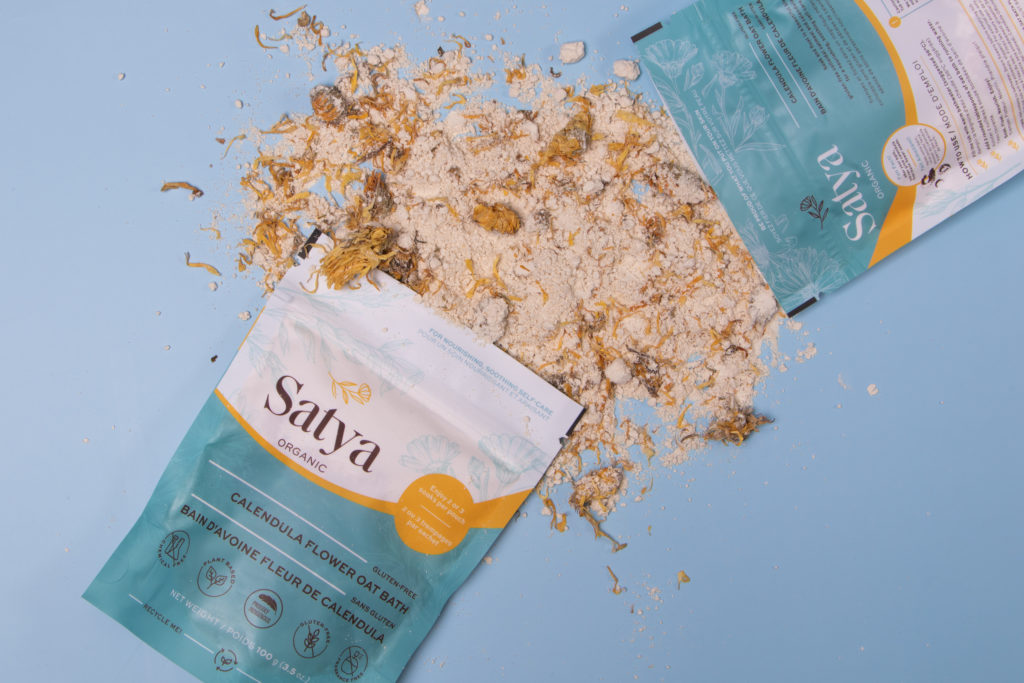
Next up, Mousseau is planning to expand into the U.S. and Asia, and preparing the paperwork to turn Satya into a B corp, a certification showing that a business meets specific social and environmental performance standards. She’s also creating an innovation lab where small-scale beauty manufacturers, particularly Indigenous women, can work on their formulations and receive expert guidance.
At the end of the day, Mousseau says that Satya’s success would mean nothing without her daughter. “My little girl is now 11 and she feels like she can do anything,” she says. “Little boys in the schoolyard have said, ‘Women can’t be the boss,’ and Esme replied, ‘My mummy is the boss of everything.’ She doesn’t see any limits—nor should she.”

